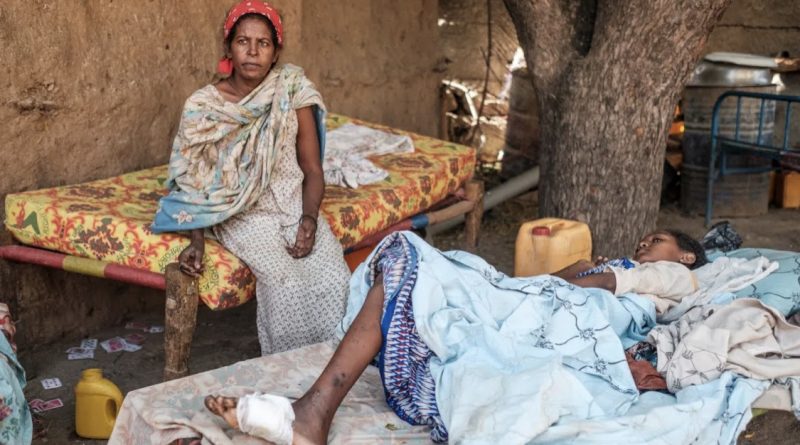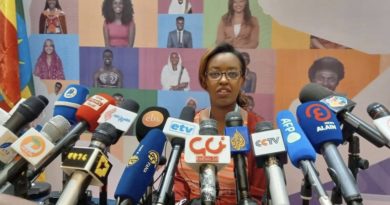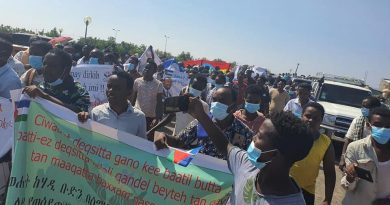Abuses in Humera and Maikadra tell different stories
The following analysis is by Bekele Oljira, a YEROO media contributor.
Finfinne (Yeroo) — While the Ethiopian public and government media has been focused on the mass killings in Maikadra, legitimate tales of similar abuses continue to come out of Humera, another border town in Tigray. If there is truly media freedom due to reforms by Prime Minister Dr Abiy Ahmed, Ethiopian media must begin speaking out on the alleged abuses by government and allied forces in the conflict.
The world now knows the Tigrayan Peoples Liberation Front (TPLF) started the war by killing “sleeping” troops of the national army in a “pre-emptive” attack; in anticipation of potential federal response to TPLF’s destabilization efforts nationwide. Some of these troops of the Ethiopian National Defense Force (ENDF), ambushed by the TPLF, were ironically seen helping Tigrayan farmers manage desert locusts in Tigray, weeks before. Despite the indisputably treasonous act of the TPLF, the ensuing conflict has led to much more carnage and we have yet to grasp the full extent of a chain of brutalities in November that could amount to war crimes. How Ethiopian institutions tackle these major harrowing events could define how Ethiopia transitions into a post-TPLF new normal.
At the early stages of the conflict, what happened in Maikadra is undeniably gruesome. Over 600, mostly Amhara, Ethiopians were slaughtered by “Samri, a Tigrayan youth group” and TPLF’s militias, according to the Ethiopian Human Rights Commission (EHRC), and beforehand Amnesty International (AI). After interviewing dozens of witnesses, victims’ families and others in Maikadra and surrounding towns, EHRC described the act as:
“premeditated and carefully coordinated grave violation of human rights.”
Yet, what occurred in the following days of the conflict might be equally deplorable and likely targeted Tigrayans in retaliation to what occurred in Maikadra.
Kidane, a Tigrayan refugee from Humera told a Telegraph correspondent in Sudan “bombs had rained down on his home,” while Getachew Berhane told AFP of “shelling” from the north. It is unknown if such northern mortar shelling targeting this border town proves Eritrean army involvement, though the ENDF was also reportedly pushed out into Eritrea earlier, to survive TPLF’s ambush at its bases. No matter which army fired the “indiscriminate” shots, the reports of civilian casualties have mounted. Another Humera resident told AFP he knew of “at least 10 people killed in his neighborhood.” Most of the witnesses to the Humera violence are believed to be refugees in Sudan, however civilians who stayed in Humera due to their wounds told AFP they witnessed “two women and an elderly man were killed by shelling” in their residential compound, which might be violations of laws of war.
In a November 25 memorandum during this conflict, Human Rights Watch (HRW) published:
“The laws of war prohibit indiscriminate attacks, which strike military objectives and civilians or civilian objects without distinction”
Tefera Tedros, a 42-year-old surgeon, told the Guardian of his hospital in Humera receiving 15 dead civilians on the first day of shelling. Other refugee witnesses in Sudan accused Amhara militias of widespread abuses and killings in Western Tigray towns. Fleeing from Humera, many said they saw “dozens of bodies along the route” to the Sudanese border, according to the New York Times.
Despite these seemingly credible witnesses accusing the Eritrean and Ethiopian militaries as well as allied Amhara forces, authorities have pushed back against the allegations. After the United Nations (UN) humanitarian coordinator Babacar Cisse in Sudan said he was “surprised” that most of the early refugees out of Tigray were young men suspected of being TPLF “fighters,” the Ethiopian government suddenly claimed international media is making sensational headlines using unfounded claims made by TPLF’s own militiamen turned refugees. However, a later outflow of women and children refugees has gradually changed the demography of those fleeing to Sudan. Through out this period, the Ethiopian Human Rights Commission (EHRC) has remained silent on these alleged abuses by federal and Amhara forces in Humera, neither exonerating nor holding them accountable.
It is vital that EHRC timely investigates the alleged abuses by government forces in other parts of Tigray that might have targeted Tigrayan civilians, whether it might be due to excessive “collateral damage” or in targeted retaliation for the massacre in Maikadra. What is at stake is not only human rights but also the general transition to democracy. Many outspoken opposition figures have remained silent to avoid angering Prosperity Party in this sensitive period while others are silent in order to not antagonize their political supporters in Amhara region. However, independent media in Ethiopia and institutions like EHRC should not peddle to any political base and we must disseminate realities as they are.
The Ethiopian people have high expectations for the EHRC because the organization has been transformed since 2019. In the past, EHRC was staffed by cadres of the TPLF ruling party, who frequently ignored human rights violations and often blamed the violence on opposition groups. After two decades of silence, the TPLF-led EHRC became outspoken right after Prime Minister Abiy Ahmed took office. At the end of 2018, the TPLF-led EHRC began to accuse Abiy’s government and portray him as a failure, without actually doing full investigation. It was not until July 2019 that EHRC gained credibility after parliament appointed the Oxford University graduate Daniel Bekele, a human rights advocate professional who previously worked for Amnesty International and Human Rights Watch (HRW). Then EHRC hired several technocrats, rights advocates, former opposition members and journalists, including former Reuters & AFP reporters. Under the new management, EHRC has become a professional and independent institution, recently holding both non-state and government actors accountable for abuses in Oromia and Wolayta regions, among others.
Now more than anytime, Ethiopians need nonpartisan institutions to take hold. Through our history, Ethiopians have seen how popular revolutions turn into dictatorships due to lack of independent institutions trusted by all citizens (including by the former rulers: the “losers”). The transition period of the DERG uprising – “Land to the Tiller” – was popular nationwide, even when that reform led to profiling and crackdown of the aristocrats and the hated landlords. Most Ethiopians celebrated and ignored the Derg’s early excesses but things quickly got out of control. Attorney General Gideon Timothewos downplayed ethnic-profiling of Tigrayans recently, describing it as being a proportional response to how the TPLF dominated all sectors of the country. Due to the two decades of minority Tigrayan domination, many Ethiopians like Gideon view the recent complaints about ethnic-profiling, as if it is similar to the post-apartheid complaints by White South Africans who accused Mandela’s reform as “reverse racism”. Yet the question in Ethiopia is, how far will it go and what is next? Are the reforms transformative and progressive? Or punitive and discriminatory? And where are the institutions engaged in checks and balances?
During his Mekelle visit, the Prime Minister said “I want this army to be the Ethiopian army, not the army of my Prosperity Party.” That is a tall order to achieve in a third world country like Ethiopia. As opposition groups in Oromia continue to report on the ruling party’s abuses (even when the Courts acquit those charged by regional police), it appears the security apparatus’s reform is lagging behind all other institutions in Ethiopia since 2018.
Newly independent institutions like EHRC, NEBE and others now have a difficult choice ahead – at a crossroads in Ethiopian history of many failed transitions – whether to take their operations into high gear and ultimately elevate other sectors of government that are failing, or to get pulled down into partisanship by them.




